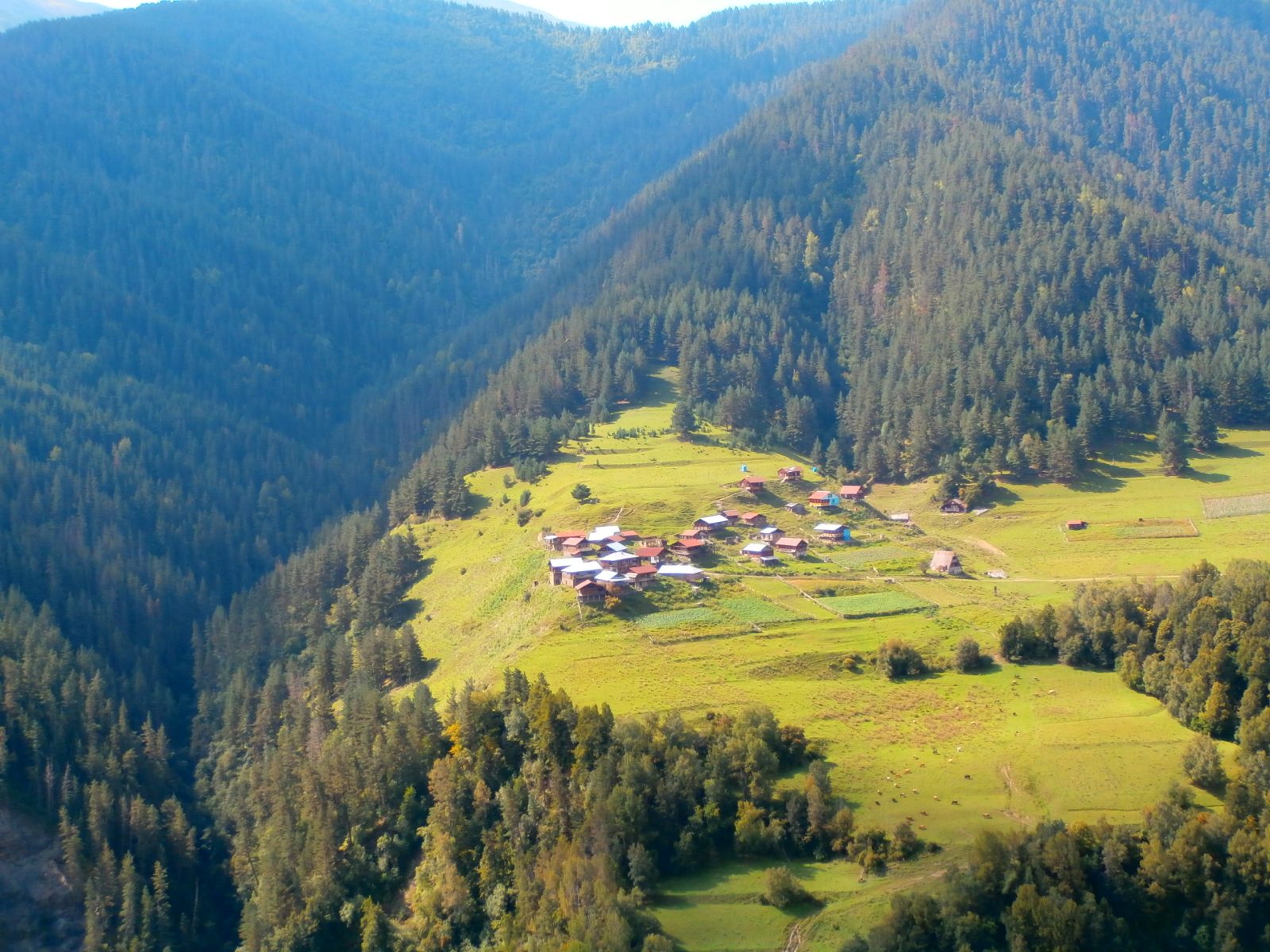My Georgia: Parsma in Astonishing Tusheti
I, like most travellers, am often asked where my favourite place is, and like most travellers find the question hard to answer. Parsma, in Tusheti, is a hard act to follow.
Criteria are difficult. Is it for the culture? The beaches? The entertainment? Are you talking about the winter, the summer or both? Usually, we have two or three answers, but for me, it is always Georgia.
I have spent nearly sixty years wandering or being wandered around the world; I am certainly fortunate, but with such endless travel comes a sort of fatigue. I have seen a lot of churches, museums and sunsets; I have eaten (too much) fine food, drunk deeply of an enormous selection of wines, beers, tonics and juices. I have met many wonderful people and had thousands of interesting conversations.
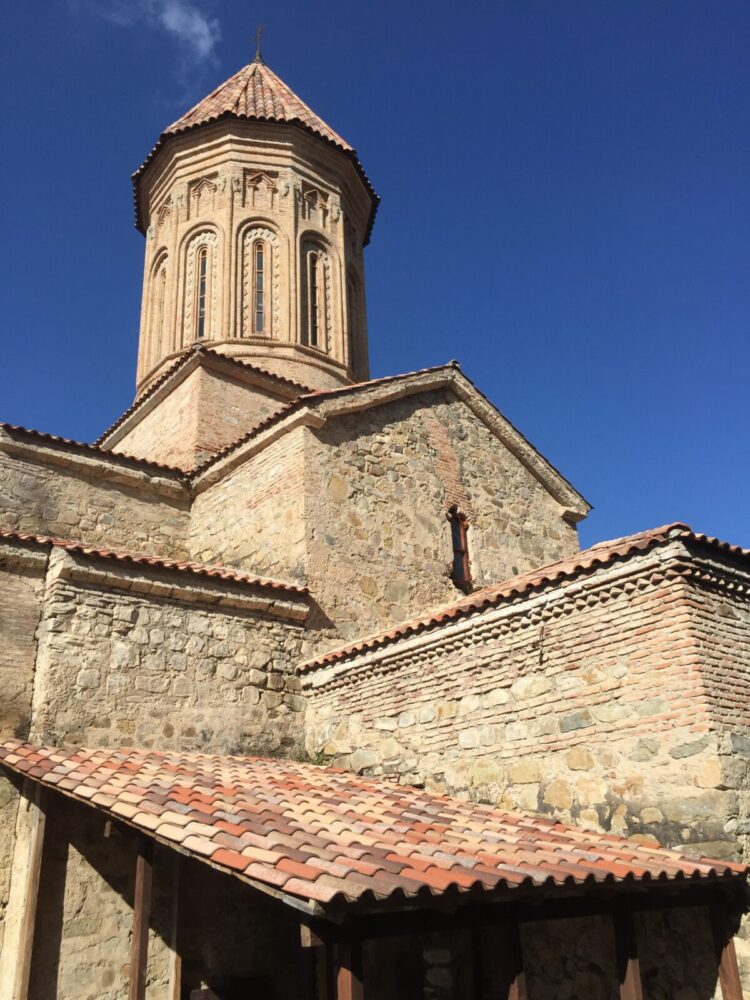
In a word, I have become hardened. Habituated to change and difficult to excite.
But Georgia comes with a personality that is unmatched; I have no idea why this small, little-known and tucked-away country carries such a punch, but it does. From the very first Georgian that I met in 2005 to my last visit a few weeks back, I have loved every inch of the country and its people.
Georgia is fascinating and captivating in equal measures. It is a country that you feel on the surface is similar, or at least not dissimilar, to others that you have known. But the more you dig, the more you look and the more you experience, the more that you realise that Georgia is quite simply “itself”.
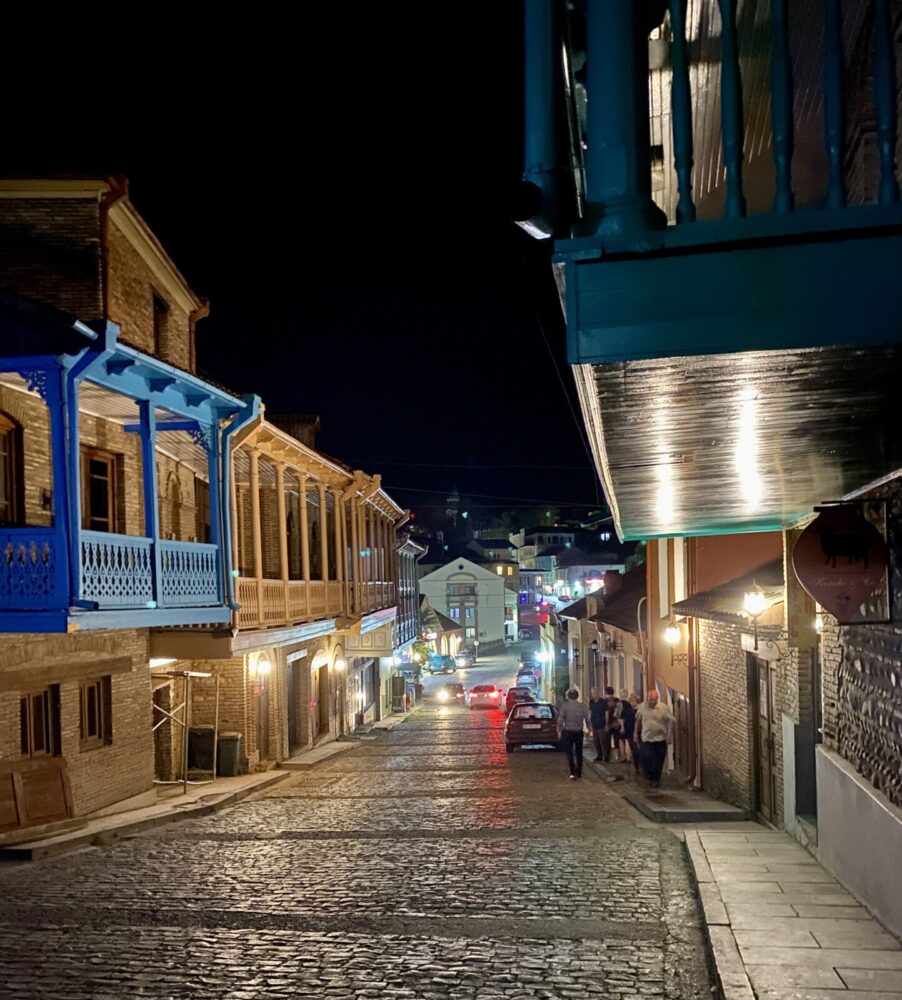
I don’t really know why. I think perhaps that it is because the country is an entity that is truly the sum of its parts. In a way that I have never known before, Georgia’s culture is woven into its landscapes which in turn are part of its evolution and above all its people.
It is a country with a strong national identity, and a positive confidence that is mesmerising. For visitors, (and I believe that nobody visits Georgia only once), it is a complete destination.
It has, of course, sights, sites, hotels, restaurants, mountains, beaches and artifacts. There are resorts, monasteries, cobbled streets, painted houses, dramatic landscapes, ancient houses, cave towns and railways. There are buses, cars, motorcycles, hikes, bicycles and swimming pools.
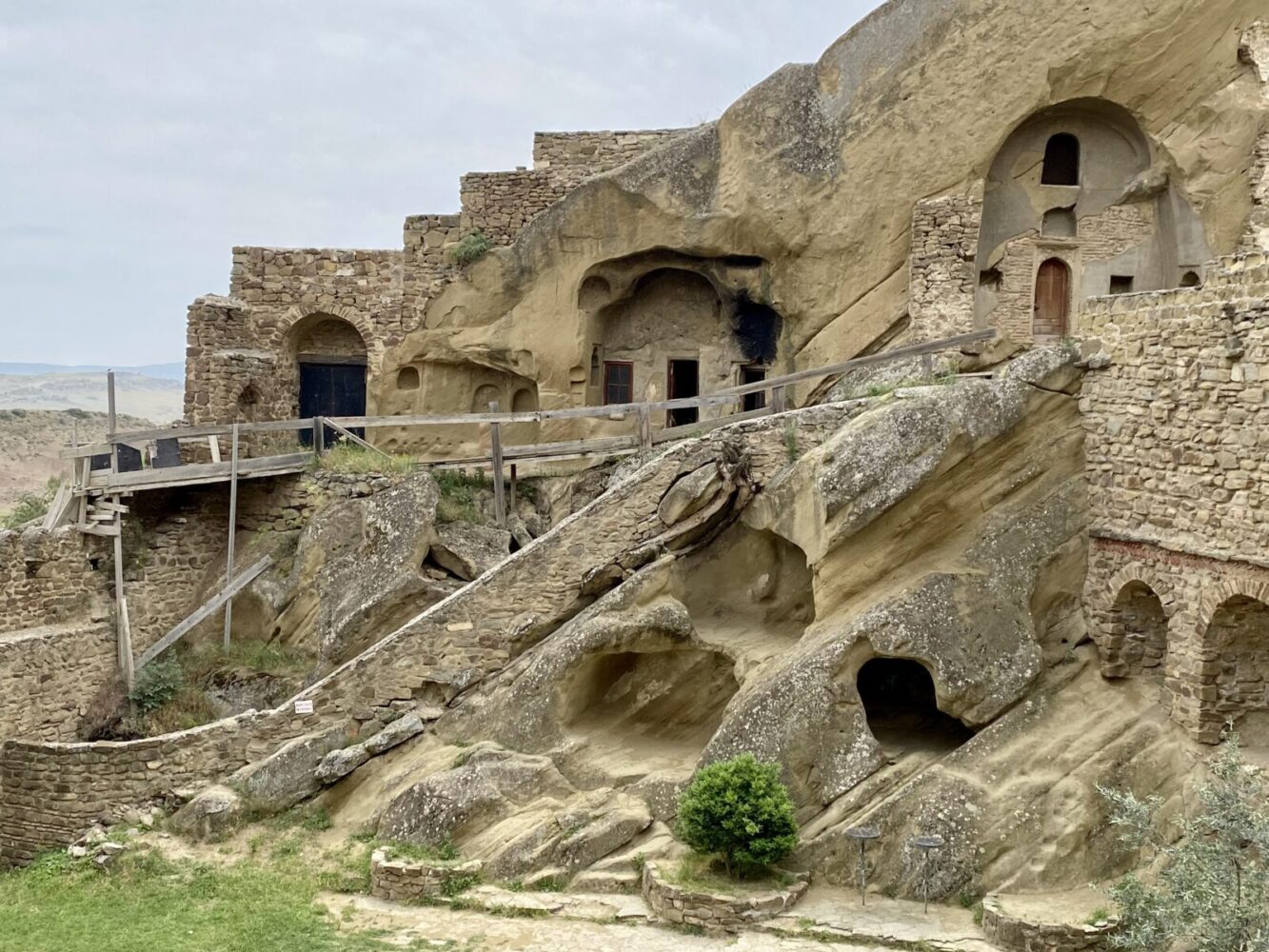
What makes Georgia unique is the way that in whatever combination of events and places a visitor may weave together, they will be left with a beautiful, strong fabric that represents their own Georgia.
I have been fortunate to visit many times and explore many hidden parts of the country. Frankly, I love them all, but am particularly fond of the visits that we have made to communities lying in the more isolated and distant reaches of the country.
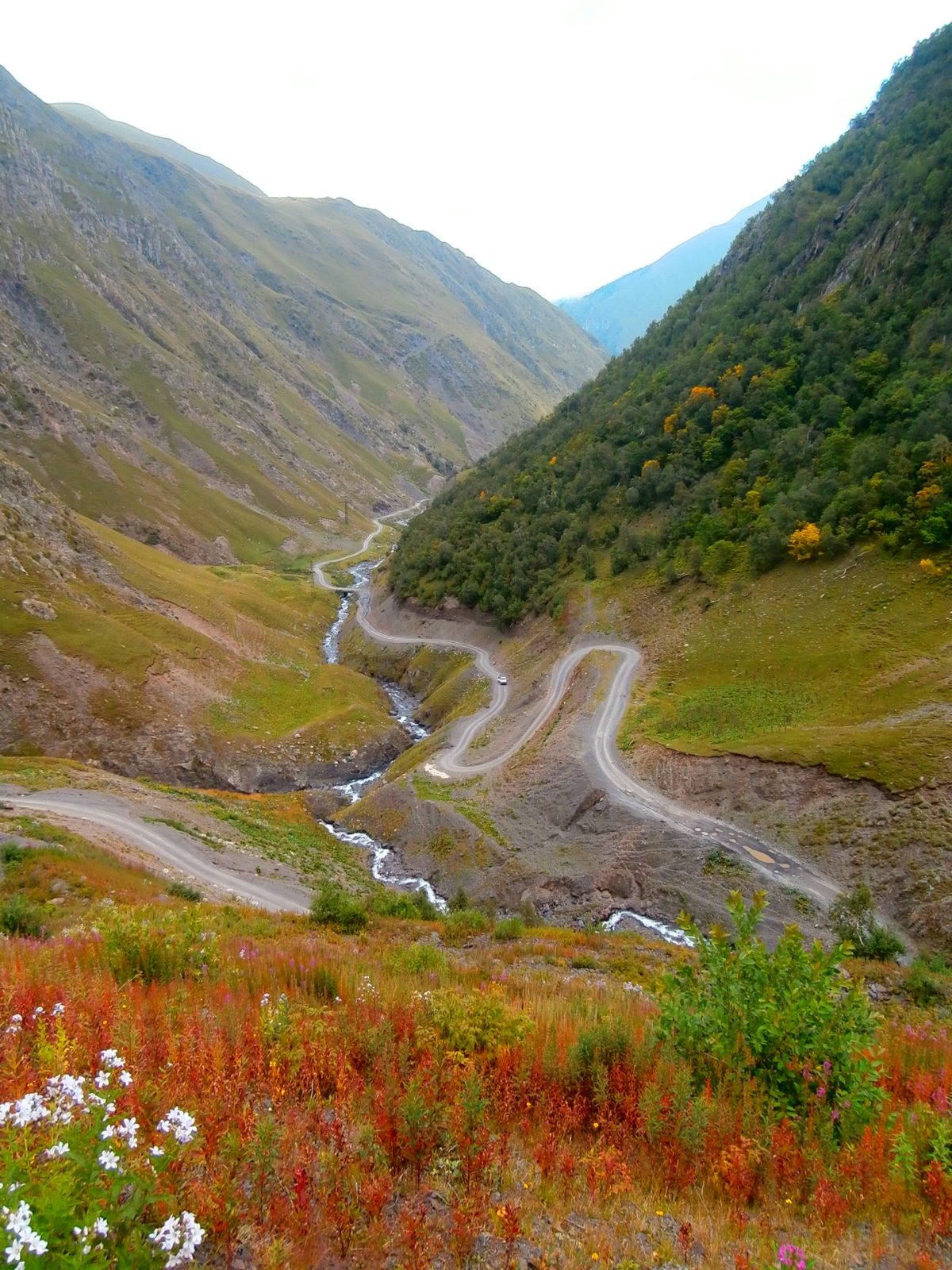
I love Tusheti and remember well the day that I, and three friends, drove deep into the mountainous enclave and through no more than idle curiosity, stopped to wander through the minute hamlet of Parsma, home to, perhaps, 125 people.
The mountains are dramatic. High, barren, windswept and forbidding; the Russian border was three or four kilometers away and the communities of Tusheti are the sum of a thousand years of life and survival on the edge of the world.
Hospitality comes naturally. Visitors are welcome and important; they bring news and ideas and are the link to the world beyond the small, compact hamlet. And correspondingly, visitors have a cultural responsibility to participate and celebrate, and for a small flake of their lives, to become one with the village.
I know this now.
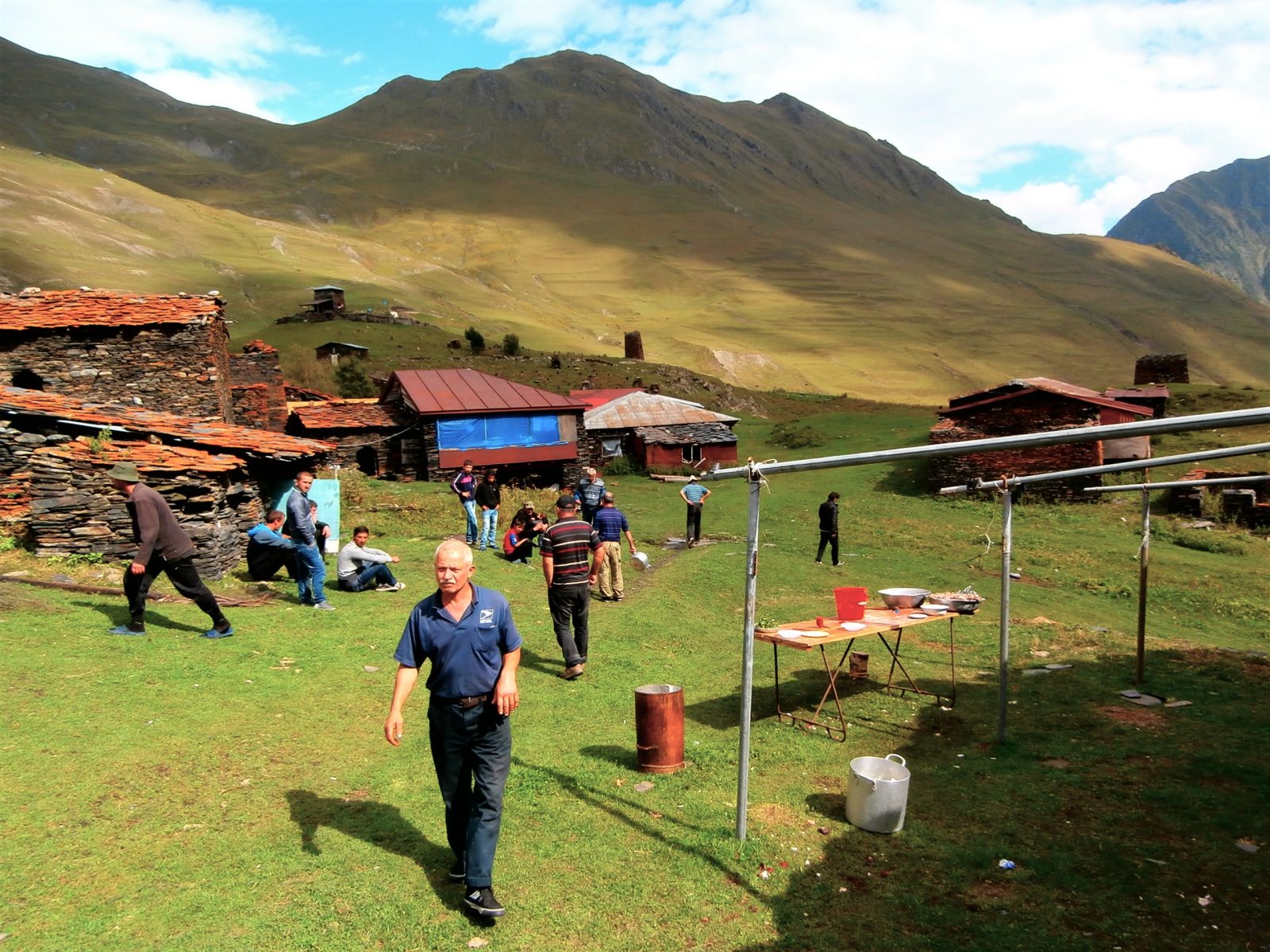
We walked up from the main road into the village to find the community busily preparing for a feast that evening. Trestles were being laid out, animals squealing as they made their way to the dinner; vegetables being prepared, musicians tuning their inimitable mountain instruments and giant flagons of wine were being hauled out for the evening’s celebrations.
The headman of the village welcomed us warmly and was delighted at our surprise appearance. He proudly showed us his village and, I think, explained the nature of the celebration to Ia, our Georgian companion.
“He has asked us to stay” she said, “it is an important feast”.
“Excellent”, we replied, “this is exactly the sort of cultural experience that we wanted to find; imagine, a village feast in a remote mountain hamlet”
Ia looked worried. “It is not really wise to accept” she said. “If we stay, we may not get home for two or three days”.
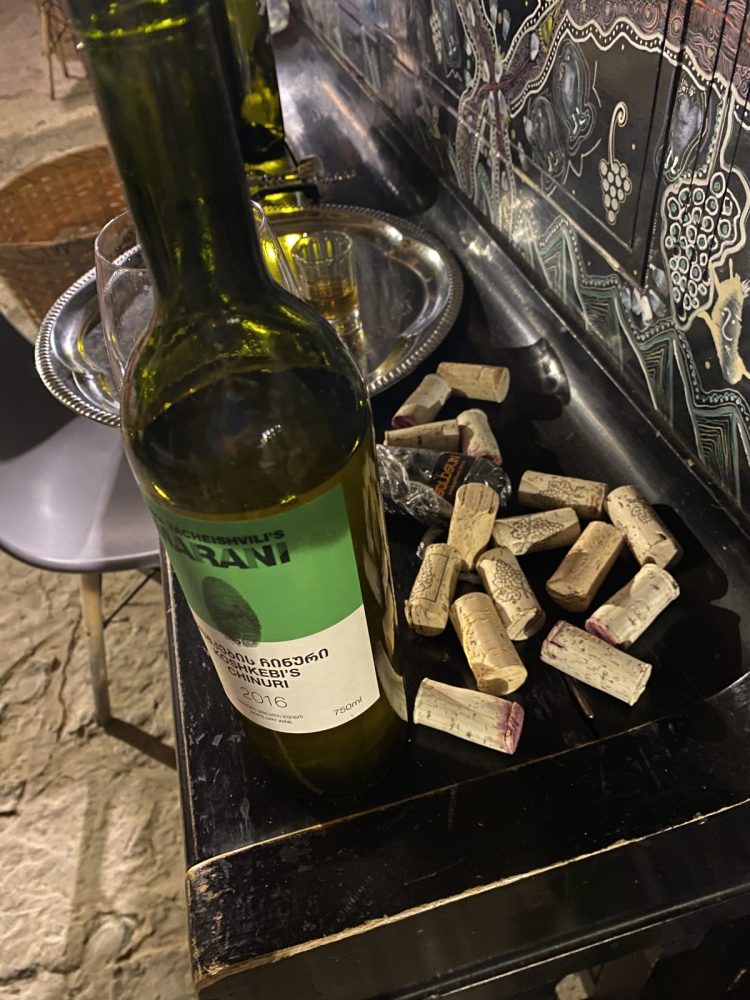
Now, it has been some years since I had been to such a party, but clearly, she was concerned that the celebrations would be overly exuberant and judging by the food and wine available, time consuming.
“No”, she said, “we have to go”.
Negotiating our departure was tricky and used all of Ia’s extensive diplomatic experience. We did not want to turn them down, but staying would be difficult for other commitments seemed to be the tack that she took.
Eventually, a compromise was reached. A small feast would be launched immediately, and honour would be done. And so, a new trestle table was produced; food, wine, musicians and more wine arrived endlessly, and toasts were drunk to new friendships, ancient cultures and peace in the future.
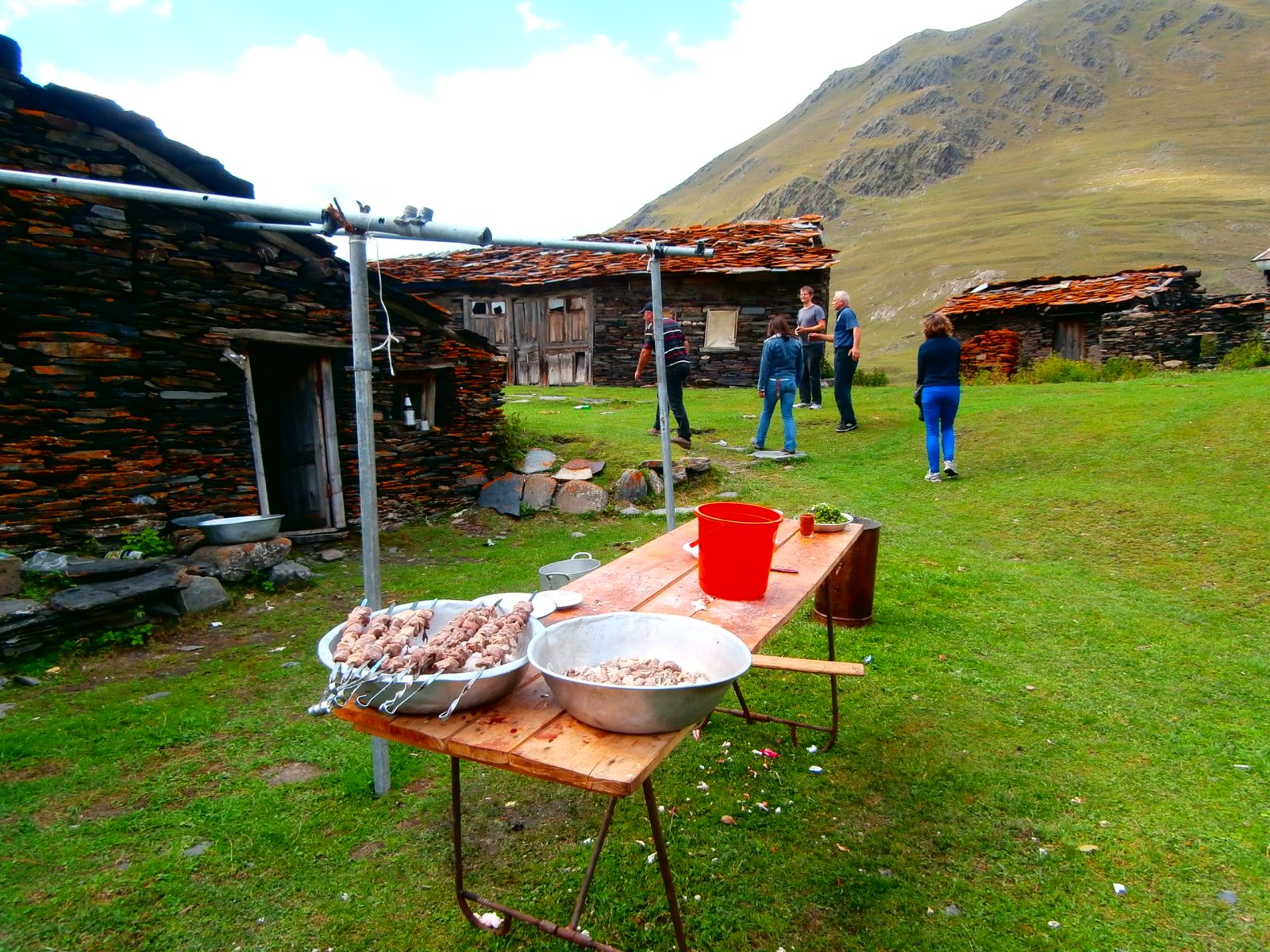
We left as the sun went down feeling so fortunate to have both participated in such an event, and that we had been able to leave in a timely manner.
It is a day that has remained etched in my mind for a decade. It was a day that epitomised My Georgia; the Georgia that I have fallen completely in love with.
